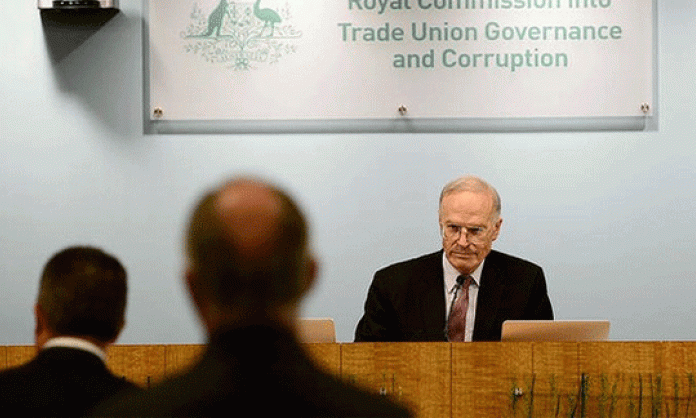Predictably inflammatory newspaper headlines aside, the trade union Royal Commission has delivered its architects little. After nearly eight months, truckloads of documents and more than 200 witnesses, Dyson Heydon’s inquiry is yet to land anything close to the knockout blow the federal government was hoping for.
It hasn’t been through lack of trying, particularly where its prime target, the CFMEU, is concerned. The commission is nothing but a safe space for construction bosses to tell their stories. With brow permanently furrowed, the commissioner has heard and reheard worn-out tales of so-called union “thuggery”: union officials using bad words, site visits, pickets, protests, “industrial tactics”, “industrial campaigns”, industrial anything really.
But if the government had expected that the commission would uncover something concrete, let alone something substantial, to back up its general anti-union slander, it’s likely to be disappointed in the results so far.
There’s no indication that this means giving up. Already, the deadline for the commission’s final report has been extended by a year to see if Heydon can scrape a few more crumbs out of the biscuit tin.
More recently, on 31 October, Abbott stood shoulder to shoulder with struggling Victorian premier Denis Napthine to announce the creation of a brand new whizz-bang police taskforce into “industrial criminality”. The taskforce, Abbott says, will consist of “up to” 30 police who will have “all of the powers currently available” to police. It’s an announcement of not much really.
Nevertheless, 31 October was a good day for the Liberal Party. Any day that a Liberal, or two, has an excuse to prattle on about unions and “lawlessness” is a day they’ll count a winner.











